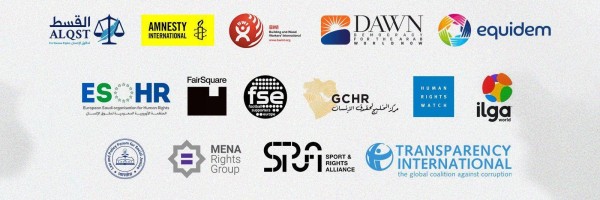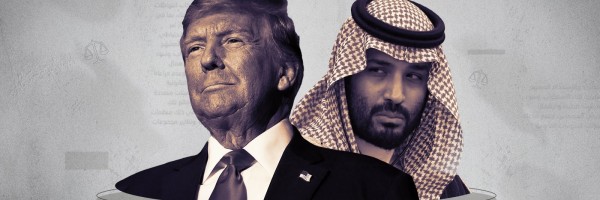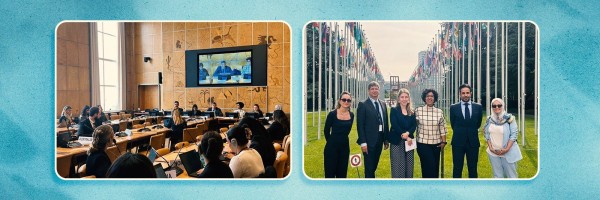On 1 May 2020, MENA Rights Group and ALQST submitted a report to the UN Secretary-General (UNSG), providing updated information on seven individuals who were subjected to reprisals by the Saudi authorities over the past year. This was submitted ahead of the presentation of UNSG’s annual report on reprisals against individuals who cooperate with the United Nations (UN) before the Human Rights Council, in September 2020.
Saudi Arabia has been featured in the UNSG’s annual report more often than any other country in the Middle East and North Africa region since the reporting mandate of the UNSG began in 2010. While stifling dissent has long been a strategy of the Saudi authorities, the past few years have seen an escalation of this crackdown following the ascension of Mohammed bin Salman to the position of crown prince in 2017, a trend highlighted in last year’s UNSG reprisals report.
This year’s submission by ALQST and MENA Rights Group highlights the ongoing pattern of intimidation and reprisals by the authorities in Saudi Arabia against human rights defenders for their engagement with the UN human rights system. This includes women human rights defenders Samar Badawi and Loujain al-Hathloul, who both cooperated with the Committee on the Elimination of Discrimination against Women. They remain in detention and are currently facing prosecution on charges including “communicating with UN human rights bodies”. Throughout the trial, their hearings have been regularly postponed. Most recently, they were scheduled to attend a hearing on 18 March 2020, however the date was indefinitely postponed due to the COVID-19 outbreak.
The report also sheds light on the situation of other human rights defenders who are serving heavy prison sentences and who continue to be subjected to further reprisals in detention. For example, human rights defender Essa al-Nukheifi, who was consulted during the preparation for the Special Rapporteur on extreme poverty’s visit to Saudi Arabia in January 2017, is facing a six-year prison sentence on charges relating to his human rights work. In prison, he has continued to face ill-treatment, including being stripped of his clothes in July 2019. A month later, he was transferred from Mecca General Prison to al-Ha’ir prison, and told that he would be facing re-trial. However, this trial does not appear to be going ahead, and may have been used as a punitive measure against him in order to cause fear and place him further from his mother and family.
ALQST and MENA Rights Group’s submission also features the case of human rights defender and co-founder of the Saudi Civil and Political Rights Association (ACPRA) Abdullah al-Hamid, who was serving an 11-year prison sentence on charges which included “providing false information to external sources”, including the UN human rights mechanisms. In detention, he was denied phone calls and family visits on several occasions and the prison authorities refused to let him inform his family, or anyone else outside the prison, about his state of health, impacting his psychological well-being. In January 2020, a doctor advised al-Hamid that he urgently needed a heart catheterisation operation. However, the prison administration delayed the operation by several months and it was eventually decided that the operation would take place in late May or early June 2020. Despite his request, al-Hamid was not allowed to remain in hospital whilst awaiting the operation. He was denied adequate medical care in prison. On 9 April 2020 al-Hamid suffered a stroke, whilst in prison, and entered into a coma. He was subsequently hospitalised at the King Saud Medical City Hospital (KSMC) and passed away on 23 April 2020.
Such cases, which were included along with others previously mentioned in UNSG reprisals reports, illustrate a consistent pattern of intimidation and reprisals by the authorities in Saudi Arabia against human rights defenders and civil society activists.
ALQST Director Yahya Assiri commented: “While the Saudi authorities’ use a narrative of reform, the continued crackdown against those who actively defend human rights shows this to be nothing but empty words. Brave defenders continue to be subjected to reprisals at every step, including with their arrest, trial, and torture and ill-treatment in prison, in Abdullah al-Hamid’s case right up until his death”.
MENA Rights Group Director Inès Osman commented: “The Saudi authorities claim that they cooperate constructively with the UN Human Rights system, however in reality they do the opposite, and punish those individuals who do engage. With Saudi Arabia likely to seek re-election to the UN Human Rights Council in October 2020, it is vital that its record is scrutinised".
ALQST and MENA Rights Group reiterate the call for the immediate and unconditional release of all prisoners of conscience in Saudi Arabia, including those imprisoned and ill-treated as a result of their engagement with the UN, and support calls for a more comprehensive system for preventing intimidation and reprisals, including for the establishment of UN monitoring mechanism over the human rights situation in Saudi Arabia.




